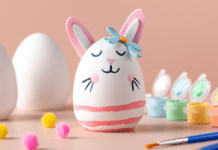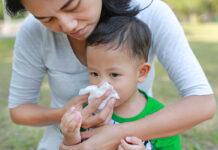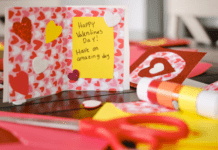
I have never parented during a pandemic. This is uncharted territory, which means I have concerns and questions about the outbreak of the novel coronavirus (COVID-19). Turns out so does my child. I am not an expert, but like all of us, I have a role to play in the response.
Over the last few days, my daughter, age 5, has asked the same handful of questions about coronavirus and the changes happening around her. I am sure many of you have curious and concerned children, as well. I write this as my child’s school has just announced it will be closed for at least three weeks and in between making a mental list of supplies I would like to grab at the grocery store, if any are left. My hope is that this article can be used as a jumping off point and tailored to your own family.
I strive for the right words, but most of the answers I give my daughter are simply, “I don’t know but we will figure it out and make it work.” Most importantly, for me, a conversation about COVID-19 should focus on reliable information, be reassuring, and be honest.
How can I explain COVID-19 to my young child?
Using simple, easy to understand words they hear often in school and at home, you can explain to your child the new novel coronavirus, COVID-19.
“COVID-19 is a new virus and doctors and scientists are still learning about it. It has made some people very sick and is highly contagious. This means, if you are feeling sick, it is important to limit contact with others and follow directions from the doctor. People get sick from all kinds of germs and we have to follow certain rules, such as covering your mouth, washing hands, and telling someone if you are not feeling well. These particular germs travel easily from one person to another and even hang out on all the things we touch. This is why we will take extra care to protect ourselves and others.”
Why is everything being canceled?
It’s true, it feels like many of the things kids (and parents) find enjoyable are being canceled or postponed. Sports, parades, trips, etc. have been taken off the calendar out of precaution to limit exposure. These measures are difficult to rationalize for children who just found out Disneyland is closed.
“Since these germs spread easily, it is important do our best to stay healthy. This may mean we stay at home a lot more. It is okay to be sad and disappointed. I am too. These changes are impacting everyone, but we can still find fun things to do and we will be able to do the things we like again soon. Its like we are just hitting the pause button, not the stop button.”
Why do I have to keep washing my hands?
I feel like washing your hands thoroughly should be categorized as a new love language. While it may feel like a strong habit instilled in your home, it is a measure strongly recommended for preventing illnesses and repeated over and over.
“Sometimes we can have germs on us and may not realize. Washing our hands is a great way to protect ourselves and others. We can have fun while washing our hands by singing a song (that lasts at least 20 seconds) and getting the bubbles all over our entire hands. There are other ways you can limit the spread of germs, such as, covering our mouth if you have to sneeze or cough, avoiding touching your face especially with unwashed hands, and staying home if you are sick.”
This is really hard. What can I do?
This is hard work for child to navigate and understand. I feel the same way. I am working hard to get credible information and also preparing our family to spend more time at home. It is easy to feel overwhelmed at any age to the disruptions, which makes this a good time to employ an attitude of gratitude.
“This can be a lot, so let’s us choose a way to focus on what we know and what we can control. There are many things in which we can be thankful for. What are you most thankful for? We can also find ways to help and we can find ways to have fun. What great ideas do you have?”
Sources for more information:
- Centers for Disease Control and Prevention – Coronavirus Disease 2019 (COVID-19)
- Child Mind Institute – Talking to Kids About the Coronavirus
- National Child Traumatic Stress Network – Parent/Caregiver Guide to Helping Families Cope With the Coronavirus Disease 2019 (COVID-19)














